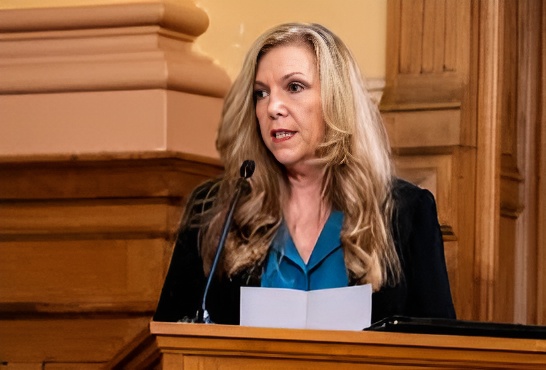Late last month, Fulton County election board member Julie Adams appealed a court ruling that mandates adherence to Georgia’s election certification deadlines. Adams contended that as an election official, she should have the discretion to withhold certification if she believes results are incorrect or unreliable.
Her appeal followed a ruling by Judge Robert McBurney, who declared that “no election superintendent (or member of a board of elections and registration) may refuse to certify or abstain from certifying election results under any circumstance.”
Adams initially filed a lawsuit seeking clarification of her duties, arguing that her role should involve discretionary decision-making, including the right to review all election materials. However, McBurney’s ruling emphasized that election officials lack the authority to withhold certification based on perceived irregularities. According to Georgia law, election results must be certified by 5:00 p.m. the Monday after an election or by Tuesday if Monday is a holiday. This year, the certification deadline falls on November 12th.
Adams previously sued Fulton County claiming that she had been denied election information pertinent to her job as a board member.
Adams’ appeal, submitted to the Georgia Court of Appeals, challenged McBurney’s assertion that concerns about election results should be addressed through legal channels rather than through the withholding of certification. The case has reignited debate over election integrity and the role of certification in the aftermath of the 2020 presidential election, when certification became a contentious issue in several states.
Adams’s appeal comes at a time when discussions about post-election audits and their role in ensuring transparency and accuracy in the voting process are also being had. Election law experts argue that comprehensive audits, similar to those in the business sector, are necessary to verify results and maintain public confidence. Adams and other officials have suggested that the current system of limited audits is inadequate, emphasizing the need for more thorough post-election reviews.
Yesterday, McBurney denied Adams’s demand for additional documents she claimed were necessary to certify today’s election results. Adams had sought detailed daily records on complaints from poll workers, watchers, and voters, all in electronic format. However, fellow board members rejected her requests, citing security concerns and the strain on staff during a busy election period. Adams filed a lawsuit for these documents, but McBurney dismissed her request.
Adams’ ongoing legal battles underscore a broader tension between strict adherence to certification laws and the push by some election officials for greater discretionary power in the certification process. As the Georgia Court of Appeals reviews her case, the outcome could shape the future role of election boards in certifying results, especially amid heightened public scrutiny of election integrity.










